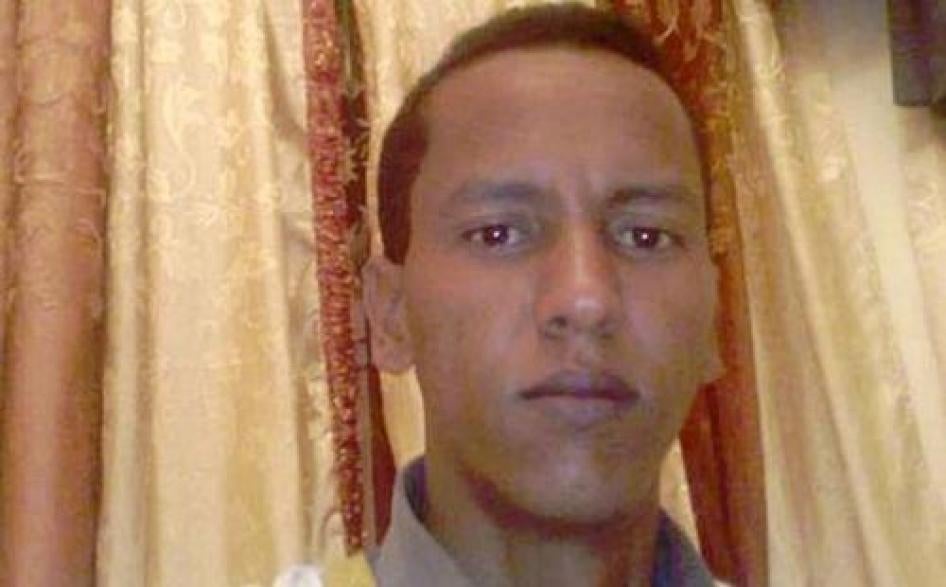(Tunis) – A Mauritanian blogger convicted of apostasy faces execution unless the Supreme Court cancels or commutes his death sentence in a ruling expected on January 31, 2017, Human Rights Watch said today. The Mauritanian authorities should drop the charges against Mohamed Cheikh Ould Mkhaitir and repeal the provision of its penal code that provides for the death sentence for apostasy.
Authorities arrested Mkhaitir, 30, on January 2, 2014, and charged him with apostasy on the basis of an article he published three days earlier on the Mauritanian news website Aqlame. The article said that some people in Mauritania use religion to justify racial or caste discrimination, citing examples from the life of the Prophet Muhammad to condemn the practice. His article prompted demonstrations by thousands in front of the presidential palace. On December 25, 2014, a court convicted Mkhaitir and sentenced him to death on the basis that he had “spoken lightly” of the prophet.
“Mkhaitir should be free to write without fear of being prosecuted, let alone executed, just as protesters should be free to demonstrate against what he wrote,” said Sarah Leah Whitson, Middle East and North Africa director at Human Rights Watch.
Under Mauritania’s penal code, the Supreme Court has the power to cancel or reduce an apostasy sentence if the convicted person repents.
A March 2015 letter signed by six Mauritanian human rights and other nongovernmental organizations, and 16 African and other international organizations, called for Mkhaitir’s immediate release on the basis that the charges against him violate his right to free expression. They cited the fact that he had repented twice: in a pretrial hearing at a military police station, and again during his trial in December 2014. Mkhaitir repented again at the Nouadhibou Court of Appeals, but on April 21, 2016, the appeals court upheld his death sentence, which leaves the Supreme Court as the court of last resort.
Article 306 of Mauritania’s penal code provides for the death penalty for apostasy, but states that if the defendant repents before a court ruling, the Supreme Court has the authority to assess the validity of the defendant’s repentance and cancel the death sentence or reduce it to a prison term of between three months and two years and a fine of between 5,000 and 60,000 ouguiya (US$14-$167).
According to a 2015 US State Department report, Mauritania has never since its independence in 1960 carried out a death sentence for apostasy. Article 6 of the International Covenant on Civil and Political Rights (ICCPR), which Mauritania has ratified, states that countries that have not abolished the death penalty should reserve it “only for the most serious crimes.” Human Rights Watch opposes the death penalty in all circumstances because of its inherent cruelty.
Addressing the thousands of anti-Mkhaitir demonstrators who had gathered in front of his palace on January 10, 2014, President Mohamed Ould Abdel Aziz was quoted in media reports as saying that the article constituted a “hideous crime” and the media “should respect our religion and not harm it under any circumstances.” In a televised interview on April 4, 2014, the president said that he did not believe that Mkhaitir was aware of the seriousness of what he had written.
The United Nations Human Rights Committee, the body of independent experts that monitors state compliance with the ICCPR, has said in a general comment on article 19, which outlines the right to freedom of expression, that “prohibitions of displays of lack of respect for a religion or other belief system, including blasphemy laws, are incompatible with the Covenant,” unless they constitute incitement to discrimination, hostility, or violence.









